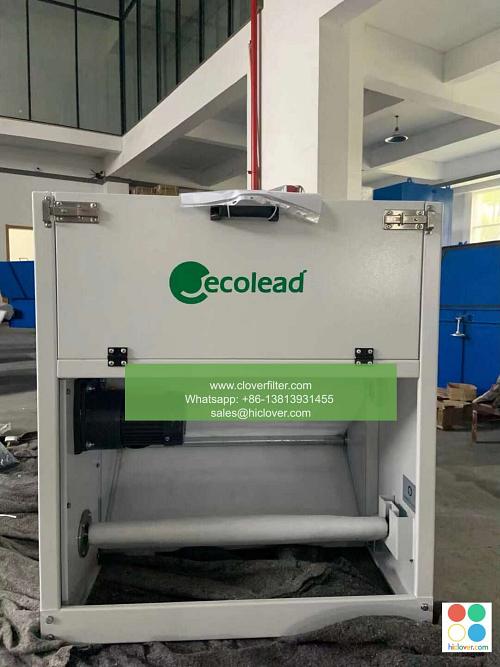Validation of Automatic Roll Air Filters in Quebec Pharmaceutical Cleanrooms

In Quebec, pharmaceutical cleanrooms are subject to stringent regulations and guidelines to ensure the production of high-quality products. One critical aspect of maintaining a clean and controlled environment is the use of air filtration systems. Automatic roll air filters have gained popularity in recent years due to their efficiency and ease of use. However, it is essential to validate these systems to ensure they meet the required standards. In this article, we will discuss the importance of validating automatic roll air filters in Quebec pharmaceutical cleanrooms and the process involved.
Pharmaceutical cleanrooms are designed to minimize the risk of contamination and ensure the quality of products. Airborne particles, such as dust, bacteria, and other microorganisms, can compromise the sterility of the environment and contaminate products. Automatic roll air filters are designed to capture these particles and prevent them from entering the cleanroom. These filters consist of a roll of filter media that is automatically advanced to replace the dirty section with a clean one, reducing the need for manual intervention and minimizing the risk of contamination.
Validation of automatic roll air filters is crucial to ensure they are functioning correctly and meeting the required standards. The validation process involves a series of tests and evaluations to assess the filter’s performance, including its ability to capture particles, airflow rate, and pressure drop. The tests are typically conducted in accordance with international standards, such as those set by the International Organization for Standardization (ISO) and the Institute of Environmental Sciences and Technology (IEST).
The validation process typically begins with a visual inspection of the filter and its installation to ensure it is properly installed and maintained. The next step involves conducting a series of tests, including:
- Particle counting: This test involves measuring the number of particles in the air before and after it passes through the filter to assess its efficiency.
- Airflow rate measurement: This test measures the airflow rate through the filter to ensure it is within the specified range.
- Pressure drop measurement: This test measures the pressure drop across the filter to ensure it is within the specified range.
- Filter integrity testing: This test involves assessing the filter’s integrity by measuring its ability to capture particles and prevent them from passing through.
The results of these tests are then compared to the specified requirements to determine if the filter is valid. If the filter meets the requirements, it is considered valid, and its use in the cleanroom is authorized. If the filter fails to meet the requirements, it must be replaced or revalidated.
In addition to the initial validation, regular maintenance and testing are essential to ensure the ongoing performance of the automatic roll air filter. This includes regular replacement of the filter media, cleaning of the filter housing, and periodic testing to ensure the filter continues to meet the required standards.
In conclusion, validation of automatic roll air filters is critical in Quebec pharmaceutical cleanrooms to ensure the production of high-quality products. The validation process involves a series of tests and evaluations to assess the filter’s performance, and regular maintenance and testing are essential to ensure the ongoing performance of the filter. By following the guidelines and regulations set by international standards, pharmaceutical manufacturers can ensure their cleanrooms meet the required standards and produce high-quality products.
FAQs
Q: What is the purpose of validating automatic roll air filters in pharmaceutical cleanrooms?
A: The purpose of validating automatic roll air filters is to ensure they meet the required standards and are functioning correctly to prevent contamination and ensure the quality of products.
Q: What tests are involved in the validation process?
A: The validation process typically involves particle counting, airflow rate measurement, pressure drop measurement, and filter integrity testing.
Q: How often should automatic roll air filters be replaced?
A: The frequency of replacement depends on the manufacturer’s recommendations and the level of use. Regular maintenance and testing are essential to ensure the ongoing performance of the filter.
Q: What are the consequences of not validating automatic roll air filters?
A: Failure to validate automatic roll air filters can result in contamination, product recalls, and regulatory action.
Q: Can automatic roll air filters be used in other types of cleanrooms?
A: Yes, automatic roll air filters can be used in other types of cleanrooms, such as those used in the food and beverage industry, but the validation process and requirements may vary.

